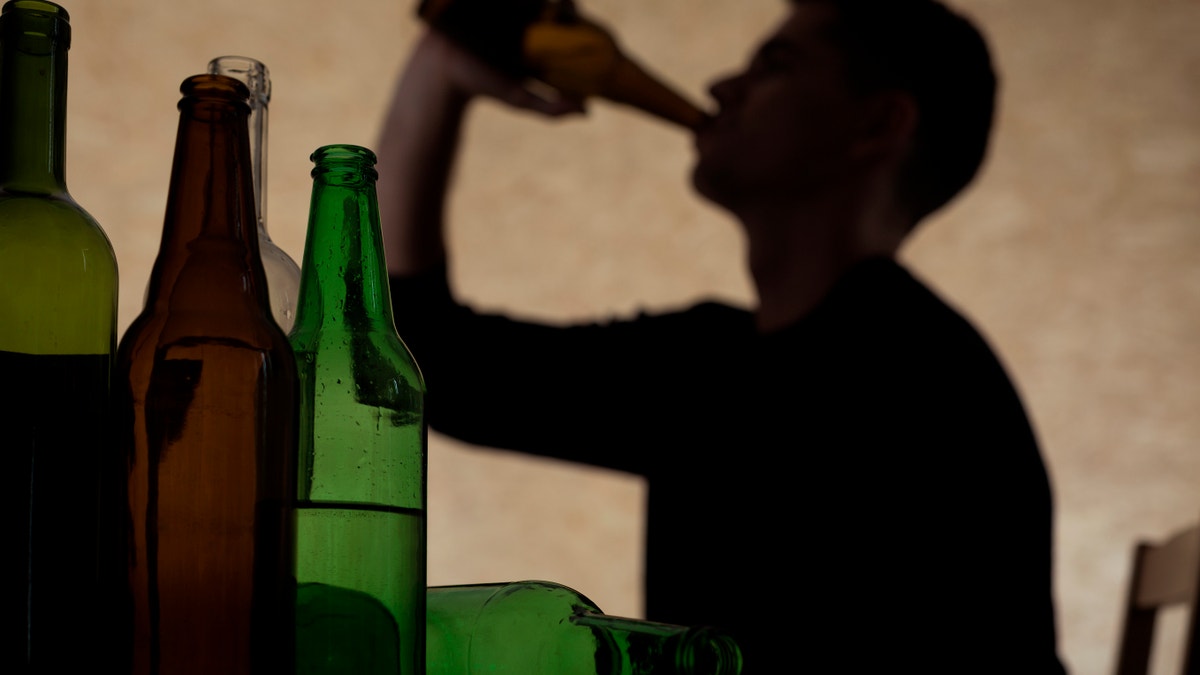
Alcoholism among young people - teenager drinking beer (iStock)
SEATTLE — Parents can help prevent their underage kids from drinking by employing a relatively simple strategy: setting clear rules that prohibit drinking, new research shows.
The finding is based on the survey responses from more than 1,100 U.S. teenagers and young adults in 24 cities in seven states. The participants, who were between 15 and 20 years old, reported their partying behavior, and also whether their families had clear rules against drinking.
"Family rules may be a useful complement to community rules and policies" in the effort to prevent underage drinking, said Mark Wolfson, the study's lead researcher and a professor of social sciences and health policy at the Wake Forest School of Medicine in North Carolina.
The researchers found that the teenagers whose parents had clear rules against underage drinking were 35 percent less likely to have attended a party where there was alcohol in the past 30 days, compared with teens whose parents did not have crystal-clear rules.
Moreover, the 658 survey participants (about 60 percent) who said they had recently attended parties with alcohol were 38 percent less likely to drink at those parties if their parents had rules against it, compared with kids whose parents didn't have clear rules, the researchers found. Future research should examine whether parents can be coached in developing effective and appropriate rules for their children, Wolfson said. Most parents do set rules, the study showed: Among the teens in the study, 58 percent reported that their parents had clear rules against drinking, Wolfson found.
It's important to curb underage drinking for many reasons, including that it's often associated with risky behaviors, such as drunk driving, interpersonal violence and vandalism, Wolfson said. It can also lead to binge drinking, which is linked with a host of health problems, including liver disease and certain cancers, according to according to a 2012 report from the Centers for Disease Control and Prevention.
The finding, though preliminary, could empower families and ultimately help them shape the healthy development of their children, said Adam Lippert, an assistant professor of sociology at the University of Colorado Denver who was not involved in the research.
However, further research should investigate which types of parental rules work best, he said.
For example, it's unclear whether it's more effective to have rules that specifically forbid kids from drinking alcohol, or to have more general rules that restrict kids from going to parties or that give them curfews, Lippert said.
Moreover, in an email to Live Science, Kenneth Land, a research professor at the Social Science Research Institute at Duke University who was not involved with the research, noted that, "it would be good to have additional data on birth order of the child and a few other items, such as religious affiliation and ... perhaps on parents' own histories of drinking alcohol [and] attending drinking parties when they were teenagers."
The research had other limitations, too. For example, about 76 percent of the participants were white, so the results may not apply to other groups.
The findings were presented Monday (Aug. 22) at the American Sociological Association's annual meeting in Seattle. The study has not been published in a peer-reviewed journal.
Original article on Live Science.
Copyright 2016 LiveScience, a Purch company. All rights reserved. This material may not be published, broadcast, rewritten or redistributed.
